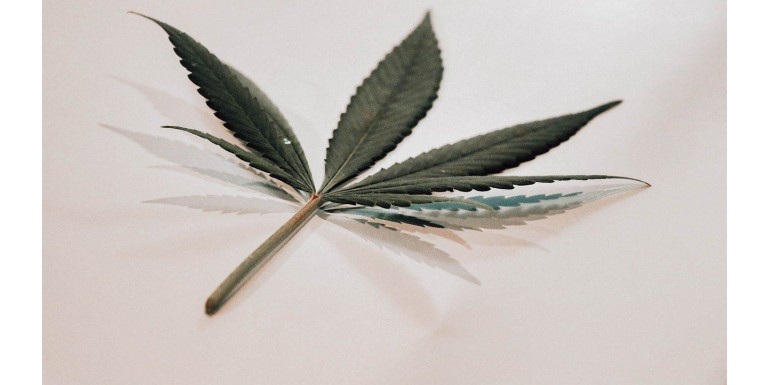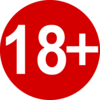
KEY DATES FOR CBD
1940: Scientists from Lilinois manage to isolate the cannabidiol molecule from the rest of the plant's molecules
1963: Raphael Mechoulam, an Israeli biochemist who, after discovering CBD in 1963, succeeded in determining its molecular structure, i.e. 21 Carbon, 30 Hydrogen and 2 Oxygen atoms
1970: The first studies are launched by many scientists.
At the end of the 1980s, discovery of the endocannabinoid system in the human body and the various results which began to attract the medical and scientific world. Several studies are being conducted as a treatment for psychosis and anxiety.
At the beginning of the 2000s, CBD began to be conquered by several countries.
What is CBD ?
CBD is the abbreviation of the word cannabidiol. One of the cannabinoids in cannabis, there are more than a hundred of them. It has great medical potential.
It is too often confused with THC, which is an active substance present in the hemp plant. The latter is more sought after for its psychotropic effects.
Should we talk about cannabis or hemp ?
Hemp is a subspecies of the Cannabis Sativa plant. In practice, we speak of Hemp when it comes to varieties that produce very little THC (less than 0.2% THC on dry extract). We talk about Cannabis for varieties that produce a lot of THC (5% and more).
The different forms of CBD
CBD can be consumed in different forms and means
Most often we will see it in the form of:
- CBD oil
- E-liquids
- Infusions
- Capsules
- Cosmetic
If you wish, you can also consume them in culinary recipes.
The benefits of CBD
For a little over a decade, CBD has proven its positive effects, which are numerous
Today we have seen that it helps fight against:
- Pain (neuropathic)
- Inflammation
- Cancer-related complications (Nausea, vomiting, weight loss)
- Anxiety attacks
- Anxiety
- Insomnia
- Fibromyalgia
- Cardiovascular illnesses
- Epilepsy
- Rheumatoid osteoarthritis
- Diabetes
- and many others ..
is cbd legal ?
In France, it is the marketing and consumption of THC that are regulated by law. According to article R.5132-86 of the public health code which regulates substances classified as narcotics - such as THC - "the production, manufacture, transport...of cannabis, its plant and of its resin, products containing it or those obtained from cannabis, its plant or its resin.” CBD, not classified as a narcotic substance, therefore escapes this regulation
In Europe :
There are no laws regarding the production, sale and consumption of CBD as such. The legislative framework for cannabidiol is set indirectly by the laws concerning hemp and THC.
The regulations on hemp govern the maximum level of authorized active ingredient and the use that can be made of this raw material
European legislation thus authorizes the sale of hemp, and therefore of CBD, with a maximum level of 0.2% THC. The sale and purchase of CBD is therefore authorized in a majority of countries in Europe, with local variations in the regulations in force
And the dosage then ?
The dosage is personal. Finding the right dosage when you start consuming cannabidiol is a long process
You need time, between the testing and adjustment phase. You need to ask questions:
- For what
- How will this help me ?
- When
- How ?
The team ofABC du CBD is here to advise, we offer you quality products. But nevertheless, start with small doses and increase from there
THC in there ?
CBD is deemed to be an anti-psychotic. He could therefore counter the psychoactivity of the THC. But is it proven in the laboratory, and to what extent can recreational consumers take advantage of the qualities of the CBD? Scientific and anecdotal evidence shows that CBD against the effects of THC, perhaps thanks to the entourage effect.
CBD and THC are the two most popular and studied cannabinoids. Over the past ten years, the media have asserted their various therapeutic and other properties. The public recognizes the importance of medical cannabinoids better and better, which helps the progress of the cause.
Can a question often arise: can CBD counter the effects of THC? The answer is as follows: Yes, CBD can counter the effects of THC. This fact has been proven from a clinical point of view, using studies designed to explore its pharmaceutical powers, as well as by the anecdotal reports of recreational consumers.
CBD and THC levels vary from one cannabis strain to another. It is for this reason that varieties that contain high levels of each of these cannabinoids are presented as such to patients and recreational users to allow them to personalize their experience.
From a recreational point of view, the CBD is not conventionally coveted; The THC is since it is psychoactive. The "power" of a variety is generally defined by THC levels, although it also depends on the use it serves.
High-CBD cannabis strains are primarily popular with recreational users, as well as recreational users who want to relax without necessarily ending up in a non-functional haze. CBD is effectively non-psychoactive and offers many therapeutic effects.
CBD against the effects of THC in medicine
Because cannabis status remains illegal in several countries, the use of medicine cannabinoids is not as democratized as it should be. Despite the countless THC virtues (it relieves pain, stimulates appetite, calms nausea, reduces intraocular pressure, etc.) This cannabinoid is always the subject of taboos, mainly because of its psychoactive properties. The CBD is not popular for recreational use but represents an interesting therapeutic compound since it generates very few undesirable effects.
Most of the effects that THC produces arise from its partial activity as an agonist of CB1 and CB2 receptors primarily found in the central nervous system and immune system, respectively. It is the CB1s that cause the psychoactive properties. CBD's affinity for cannabinoid receptors is much lower than that of THC, but it still affects the endocannabinoid system in various ways. CBD, however, acts as a partial CB1 antagonist and weak inverse agonist.
This study published in Front Psychology questions the power of CBD to counter the psychoactivity of THC, more precisely, to counter the “permanent” and “adverse” effects of THC such as paranoia, anxiety and memory problems. This is particularly relevant for medical cannabis users who want to enjoy the therapeutic benefits of the plant without exposing themselves to the adverse effects of THC. The analysis showed that CBD could act as a neuroprotectant, which gives it, to a certain degree, the power to counteract the negative effects of THC.
In fact, the interaction of CBD with THC is an example of the “entourage effect” in which all of the cannabinoids and terpenes contained in a cannabis specimen contribute together to the overall effect. CBD taken in combination with THC represents a viable treatment option, even for those who are sensitive to THC and react negatively to its effects. In addition, CBD slows the breakdown of THC in the liver, which prolongs its therapeutic action.
Much more research work must be carried out to determine the exact details of the interaction of CBD with the CB1 and CB2 receptors, an activity which influences the effects of THC. It is not yet understood how isolated CBD – as found in a single cannabinoid medicine – interacts with THC
The entourage effect generally refers to the interaction of all the cannabinoids found in a cannabis specimen. Currently, modern science does not yet know how the combination of cannabinoids isolated from the plant affects the entourage effect.
For example, the researchers in this study looked at the effects of CBD consumed orally on those of THC smoked. They found that orally administered CBD had no significant effect on the measured parameters, suggesting that the effects of CBD on THC are determined by individual differences in plasma drug concentrations.
Additionally, modern medicine confirms why THC is psychoactive, namely, because it acts on CB1 (as a partial agonist) of the central nervous system. CBD, for its part, is a partial antagonist of CB1 receptors. This is why it is very difficult to recreate the entourage effect in the laboratory.
CBD is considered to be an anti-psychotic and neuroprotectant, which has implications for the possible applications of CBD in the treatment of certain mental illnesses such as bipolar disorder, schizophrenia, dementia, etc. However, it is not understood how such characteristics attenuate the effects of THC in the absence of the entourage effect, requiring continued research.
Recreational cannabis users and CBD
The effects of cannabis strains are described differently: “immobilizing”, “energetic”, “tremendously potent” and “relaxing”. The effects are largely determined by the concentration of the different cannabinoids, terpenes and flavonoids
The power of CBD to counteract the effects of THC has piqued the curiosity of scientists for some time now. However, the studies are extremely difficult to design, since the cannabinoids must be isolated and then administered together.
This methodology is essential since it allows researchers to determine the exact quantity of each cannabinoid administered. At the same time, by isolating the different cannabinoids, this type of study alters the entourage effect which could be the main mechanism by which CBD counters the effects of THC.
Thus, anecdotal reports from recreational users remain the best source of information about how CBD counters the effects of THC.
Consumption of CBD in the event of a “white-out” (an unpleasant but harmless cannabis overdose) has become a common practice among recreational users. The latter claim that this measure is effective, and CBD could also become popular for recreational purposes.
For the cannabis experience to be inclusive, it is important to ask in which contexts the recreational use of CBD might be favorable – even for those who do not need it. Likewise, one must wonder if CBD could help medical users who do not want to experience the effects of THC.
